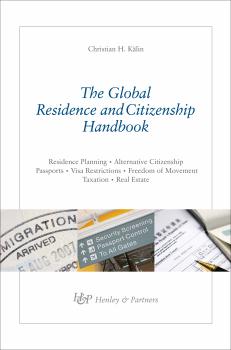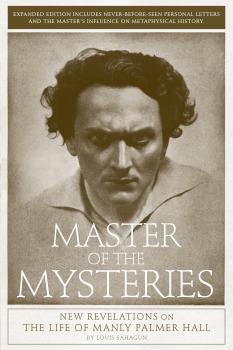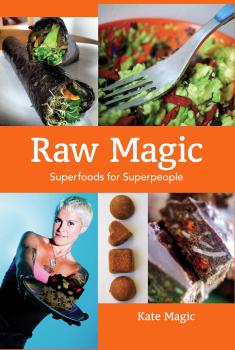ТОП просматриваемых книг сайта:
Ingram
Все книги издательства IngramАннотация
This book presents in-depth yet practical information on the most important issues concerning international residence and citizenship planning for private clients. <p>It is the quintessential guide for global citizens and their advisers, such as law firms, tax consultants, private banks and family offices. At the same time the handbook is also an invaluable guide for private individuals and families, business owners, entrepreneurs and investors who are interested in expanding their horizons. <p>The book covers all important aspects of residence rules, citizenship law, dual citizenship, passports and visa-free travel, tax and real-estate planning, and many more internationally relevant topics. <p>The Global Residence and Citizenship Handbook is a uniquely valuable reference manual which includes the following: • An introductory section on Residence Planning and Citizenship Planning, including guidance on giving up U.S. Citizenship or a U.S. Green Card. • Information on citizenship, passports and visas, including the Henley & Partners Visa Restrictions Index, a global ranking of countries according to the travel freedom their citizens enjoy. • An overview of the world’s premier residence options, including chapters on Austria, Belgium, Canada, Hong Kong, Jersey, Malta, Monaco, Singapore, Switzerland, the U.K. and the U.S. • A comparison of Citizenship-by-Investment options, and an exploration of the programs available today.
Аннотация
Osho: The Buddha For the Future, serendipitously arrives in the wake of the explosive release of the Netflix documentary series, ‘Wild Wild Country.’
Author Maneesha James witnessed first hand, and kept a meticulous record of the creation of Osho’s communes and the evolution of his work as they unfolded.
This, the first volume of a trilogy, opens at the ashram in Pune, India, in the early ‘70’s. The reader follows this phase through Osho’s public discourses on many of the ancient masters, the early experimentations with meditation techniques in which the author was personally involved, Osho’s unique partnering of meditation with therapy, the introduction of ‘Zorba the Buddha’ and ‘The Psychology of the Buddhas,’ his energy work, and much more.
Along with her own observations and experiences, Maneesha’s interviews with numerous key players cast a whole new understanding on the remarkable years of Rajneeshpuram in Oregon.
Her account fills in the gaping omissions in the Netflix docuseries – providing an, intimate, in-depth understanding of what it was like to be a modern-day seeker in a contemporary mystery school designed to help realize a daring new vision for humanity, espoused by an iconoclastic spiritual master.
In addition, for those willing and able to look below the hype, the inside story behind the political machinations – both on the part of the commune administrator and the US government – makes for a riveting read.
Osho: The Buddha For the Future provides a valuable testimony to a spiritual master far ahead of his time, and is a remarkable record of the efforts of the most powerful government in the world to silence him.
Author Maneesha James witnessed first hand, and kept a meticulous record of the creation of Osho’s communes and the evolution of his work as they unfolded.
This, the first volume of a trilogy, opens at the ashram in Pune, India, in the early ‘70’s. The reader follows this phase through Osho’s public discourses on many of the ancient masters, the early experimentations with meditation techniques in which the author was personally involved, Osho’s unique partnering of meditation with therapy, the introduction of ‘Zorba the Buddha’ and ‘The Psychology of the Buddhas,’ his energy work, and much more.
Along with her own observations and experiences, Maneesha’s interviews with numerous key players cast a whole new understanding on the remarkable years of Rajneeshpuram in Oregon.
Her account fills in the gaping omissions in the Netflix docuseries – providing an, intimate, in-depth understanding of what it was like to be a modern-day seeker in a contemporary mystery school designed to help realize a daring new vision for humanity, espoused by an iconoclastic spiritual master.
In addition, for those willing and able to look below the hype, the inside story behind the political machinations – both on the part of the commune administrator and the US government – makes for a riveting read.
Osho: The Buddha For the Future provides a valuable testimony to a spiritual master far ahead of his time, and is a remarkable record of the efforts of the most powerful government in the world to silence him.
Аннотация
Can Yoga make you happy – what is the secret of happiness? While the practice of Yoga is now being widely embraced by the West in context with health benefits, body flexibility and as a relaxation method, in a world where most of us now have on a material level almost everything we need, the spiritual aspects and questions of quality of life, happiness and well-being are center-stage questions now. To be happy is now more valued than material riches, money and prestige, which many have but realize that they did not find happiness through them. Osho continues his presentation and analysis of the original Yoga sutras by Patanjali, Yoga: The Science of the Soul, with ten extraordinary talks addressing key issues in our lives. Such incredible teachings and lessons are hidden in these ancient scriptures. According to ordinary thinking, to be friendly with someone who is happy is very easy. The truth is it is not! In fact, it is one of the most difficult things in life. If somebody is happy, immediately you are shocked – how is it possible? How come you’re not happy and the other is? This seems like injustice. With the happy you feel jealous – in a subtle competition. You feel inferior with happy people. Or you may show your happiness, but that’s just a facade, a show, a mask. Learn about the secret and once the secret is known, once you know how one becomes happier, and how with others’ happiness you create a situation for yourself to be happy, there is no barrier; you can go as far as you like.
Learn the secret of being happy with the whole universe, with every flower, river, rock and star; become one with this continuous eternal celebration.
This remarkable OSHO Classic belongs in everybody’s library!
Learn the secret of being happy with the whole universe, with every flower, river, rock and star; become one with this continuous eternal celebration.
This remarkable OSHO Classic belongs in everybody’s library!
Аннотация
The feeling that it is five minutes to midnight is known to many by now, and is often referred to as the «Doomsday Clock.» As the many crises faced by humanity and planet Earth gather and tumble toward an emergency, some have even reduced the time left to two and a half minutes. It is no wonder that we feel increasingly helpless and at a loss what to do.<br><br>
Osho calls Zen not a teaching but an alarm to wake us up, because as individuals we are all deeply asleep, and this sleep has to be shattered. “For centuries, you have been asleep. Sleep has become your nature. You have forgotten what awareness is, what to be awake means.” He wants us to wake up…before it is too late.<br><br>
Zen, more than any other religious or spiritual tradition, is relevant to such times as these, when none of our old approaches to solving problems will do. Immediate, urgent, and direct, Zen is not interested in answers or in questions, not interested in teaching at all, because it is not a philosophy. As Osho begins here, by quoting the great Zen master, Diae: “All the teachings of the sages, of the saints, of the masters, have expounded no more than this: they are commentaries on your sudden cry, ‘Ah, This!’”<br><br>
In this series of talks, Osho unfolds a selection of classic Zen stories and responds to questions. Along the way, we learn how the tools of Zen can be used to embrace uncertainty, to be at ease with not-knowing, to act decisively and with clarity and awareness. To «get woke,» in other words, so that we can use each moment between now and midnight for transformation.<br><br>
Osho calls Zen not a teaching but an alarm to wake us up, because as individuals we are all deeply asleep, and this sleep has to be shattered. “For centuries, you have been asleep. Sleep has become your nature. You have forgotten what awareness is, what to be awake means.” He wants us to wake up…before it is too late.<br><br>
Zen, more than any other religious or spiritual tradition, is relevant to such times as these, when none of our old approaches to solving problems will do. Immediate, urgent, and direct, Zen is not interested in answers or in questions, not interested in teaching at all, because it is not a philosophy. As Osho begins here, by quoting the great Zen master, Diae: “All the teachings of the sages, of the saints, of the masters, have expounded no more than this: they are commentaries on your sudden cry, ‘Ah, This!’”<br><br>
In this series of talks, Osho unfolds a selection of classic Zen stories and responds to questions. Along the way, we learn how the tools of Zen can be used to embrace uncertainty, to be at ease with not-knowing, to act decisively and with clarity and awareness. To «get woke,» in other words, so that we can use each moment between now and midnight for transformation.<br><br>
Аннотация
The book you hold in your hand or you are just ordering from an online store is a unique book. It is the first book by the contemporary mystic Osho. At the beginning of his public life, Osho who is at that time a professor of philosophy at Jabalpur University, introduces people to a new and unique understanding of meditation during experiential meditation camps. He speaks to the participants and responds to questions. This book is the first published records of Osho's first meditation camp in Rajastan, India. In fifteen small chapters he gives a condensed presentation of his understanding of meditation which he then elaborates in many more talks and publications – but the essential message is already available in this book. Osho speaks to the individual, not to a collective, not the abstract collective of humanity, or a collective defined by religion or nationality or race but to individuals as the core element of existence. We used one of his opening comments as a longer quote on the front cover of the book as it seem so important «The individual is the unit of the whole and it is through him that both evolution and revolution can take place. You are that unit.»<br><br>Osho, mentions this book on several occasions in his later talks. When the second prime minister of India traveled to Russia, a copy of The Perfect Way was with him. And when someone in contact with Osho at the age of ninety stumbled upon The Perfect Way, he commented, “All my learning of the scriptures was futile, only this small book is enough.”<br><br>In The Perfect Way the reader meets a human being who knows, but who also knows how to convey what he knows. His genius in full flight, he points us as far as one can with words toward the inner world of the self, toward the zone of silence.<br><br>What starts on a hot summer day in the early 1960’s will prove to be the first seed of a revolutionary experiment in the flowering of human consciousness – one which will eventually transform the lives of millions of people all over the world.<br><br>“To be without thoughts is meditation,” Osho says. “When there are no thoughts, it is then we come to know the one hidden by our thoughts. When there are no clouds, the blue sky is revealed.”<br><br>This book is page after page of blue sky.
Аннотация
Among the new chapters: Author Louis Sahagun discovered many of Manly Hall's lost love letters to his future wife, revealing aspects of their love life that contributed to his career and intimate life story. It’s been revealed that Osama Bin Laden read Manly Hall’s books; author Sahagun tells why. We now know why Manly Hall was an expert on the subject of cocaine and its distribution, and spoke of it in his newsletters.
Аннотация
This is the food of the gods, this is the food to turn us into superbeings who save humanity from disaster in a tidal wave of love and positivity. How would it be to eat the most divine tasting dishes at every meal, gourmet food fit for kings and queens? How would it be if this was made with the most incredibly nutritious fruits and vegetables available on the planet?
Аннотация
The Secret Source reveals the actual occult doctrines that gave birth to “The Law of Attraction” and later inspired the media phenomenon known as The Secret. Follow the trail into ancient Egypt to uncover where the law of attraction was first recorded, and how it was brought back to America to foment the New Thought movement and the prosperity cults of modern times. The new, enlarged edition will have a new section on Sex Magic and its relationship with the law of attraction. Maja D’Aoust conducts popular lectures on esoterica. Adam Parfrey is releasing this fall a visual history of fraternal orders, Ritual America.
Аннотация
The author was educated at Yale, Princeton and Harvard, and has held many positions of responsibility in Pakistani institutions and organisations.This work is primarily interested in the ethical foundations of Islamic economics, and in this regard it is quite unique. The author is familiar and comfortable with the key Islamic sources, the Qur'an and the traditions of the Prophet Muhammad, unlike many individuals in the field today.Each chapter is organised for ease of reference, a notable point for undergraduates studying the book.The work focuses on three main areas:– Firstly, the book delves, diligently and objectively, into the philosophic premises of contemporary economics and has come up with an honest appraisal of their positive and negative dimensions.– Secondly, the book focuses on the sources of morality, both secular and religious, and powerfully demonstrates that the three major religious traditions: Judaism, Christianity and Islam, particularly the Islamic one, provides an appropriate framework for both private morality and public policy.– Thirdly, this work represents a worthwhile shift from simple theoretical discussions and paves the way to evaluating the worth of specific policies on the basis of empirical information.Islamic Financial is a massive industry. It currently equates to a two trillion dollar industry.
Аннотация
What's Your Story?" Using stories to ignite performance and be more successful is a leaders book. This book is written for people who want to make a difference; people who want to build, create, learn, share, and inspire; people who want to give themselves and others the powerful gift of story. «What's Your Story?» helps leaders enhance their performance by looking at their everyday communications differently. By learning how to use the right stories at the right time – success and failure stories – Craig will show you how to create strong connections with people and with the organization's strategy to enhance your performance.










